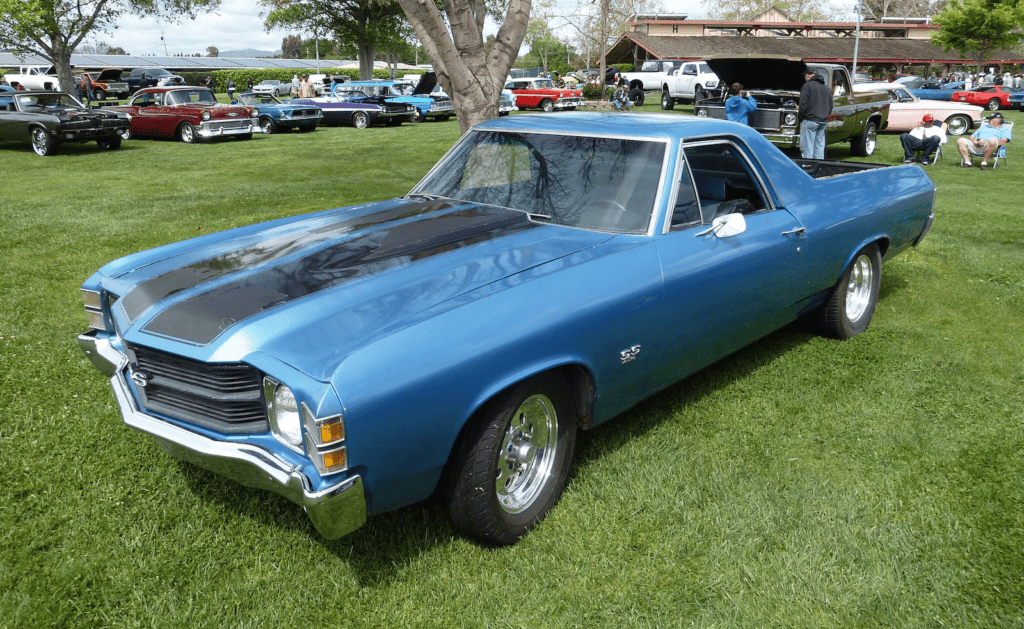
What Is the Significance of “El Camino” and Its Various Uses?
“El Camino,” translating to “The Road” or “The Way” in English, carries both literal and profound metaphorical meanings. It’s most notably recognized as El Camino de Santiago, a historic pilgrimage route leading to the shrine of the apostle Saint James in Santiago de Compostela, Spain. This pilgrimage symbolizes a spiritual journey, personal transformation, and the quest for meaning.
In literature and art, “El Camino” often represents life’s journey, encompassing its trials and revelations. In everyday life, within Spanish-speaking regions, it’s simply a road or path, but it also appears in place names, like California’s historic “El Camino Real.”
Trending Now!!:

The term has also found its way into modern culture, with branding like the Chevrolet El Camino, which blends utility with automotive style, and in media, such as the film El Camino: A Breaking Bad Movie, where it signifies a character’s post-series path.
“El Camino” is a Spanish phrase that translates to “The Road” or “The Way” in English. The term “camino” comes from the Latin “caminus,” which originally meant a furnace or a forge, but evolved in Romance languages to refer to a path or road, likely due to the association of paths with the process of forging or creating. Here’s a deeper look into the significance and uses of “El Camino“:
Etymology and Basic Translation
- El – This is the singular definite article in Spanish, equivalent to “the” in English.
- Camino – This noun means “road,” “path,” or “way.” It can refer to both literal and metaphorical paths.
Culture and History
- Religious Significance:
- El Camino de Santiago (The Way of St. James) is one of the most famous uses of the term. This is a network of pilgrims’ ways or pilgrimages leading to the apostle Saint James the Great shrine in the cathedral of Santiago de Compostela in Galicia, Spain. This pilgrimage has been a significant spiritual journey for Christians for over a thousand years.
- Literature and Art:
- The concept of “the way” or “the path” is often used metaphorically in literature and art to signify life’s journey, personal growth, or the quest for meaning. In various cultures, the idea of a path or road is symbolic of life’s challenges and choices.
- Everyday Usage:
- In Spanish-speaking countries, “el camino” might simply refer to a road or pathway in everyday conversation. It’s used in street names, book titles, or even in naming places like “El Camino Real” (The Royal Road), which refers to a historic road in California, USA, originally laid out by Spanish explorers.
Modern Interpretations

- Branding and Media: The term has been adopted in various contexts outside of its native language. For instance, “El Camino” was used as the title for a film in the Breaking Bad universe, where it metaphorically represents the path of the main character after the series’ events.
- Automotive: There’s also the Chevrolet El Camino, a car known for its unique body style that combines elements of both a car and a pickup truck. Here, “El Camino” might embody the dual nature or the ‘path’ of utility and style.
Conclusion
“El Camino” transcends its literal translation to embody broader concepts of physical and metaphorical journey. Whether it’s the spiritual pilgrimage of El Camino de Santiago, the life path symbolized in literature, or the dual nature of a vehicle like the Chevrolet El Camino, the phrase resonates with themes of travel, transformation, and exploration.
In English, while we might not use “the road” in the same mystical or symbolic sense as “El Camino,” the concept is universally understood, highlighting the shared human experience of navigating life’s journey.
